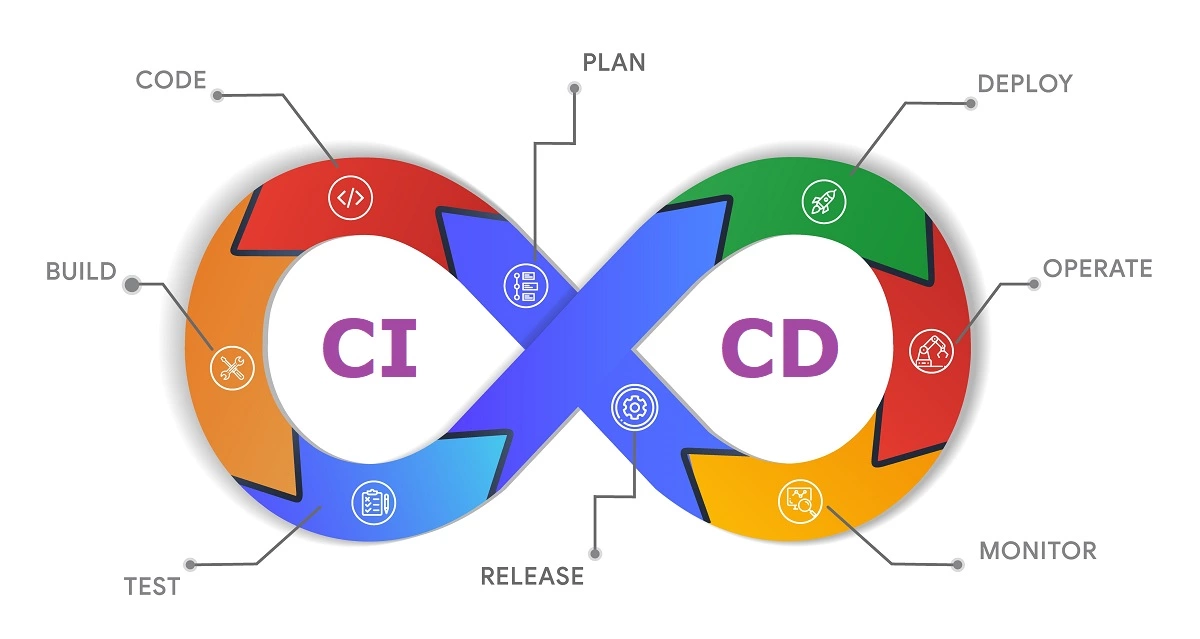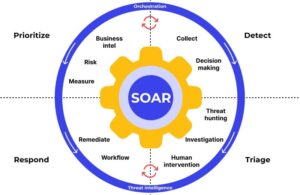Sustainable Digital Innovation: How Tech Companies are Going Green
In recent years, the tech industry has witnessed a paradigm shift toward sustainability, motivated by an urgent need to address environmental challenges. The increasing awareness of climate change, coupled with a growing consumer demand for eco-conscious practices, has prompted tech companies to reassess their operational frameworks. This article delves into the importance of sustainable practices within the tech sector, highlighting innovative strategies that firms are employing to promote environmental stewardship. We also explore successful case studies that illuminate the path toward greener tech solutions, showcasing the role of eco-friendly software and how embracing sustainability can create a competitive advantage.
The Importance of Sustainable Practices in Tech Industry
The tech industry plays a pivotal role in shaping modern society, yet it is also a significant contributor to environmental degradation. From electronic waste to high energy consumption in data centers, the sector faces challenges that demand urgent action. Sustainable practices not only help mitigate these issues but also align with global efforts to combat climate change. Moreover, incorporating sustainability into core business strategies can enhance a company’s reputation and foster trust among consumers increasingly concerned about their ecological footprints.
Implementing green policies allows tech companies to attract environmentally conscious investors, tapping into a burgeoning market that values corporate responsibility. Companies that embrace sustainability can reduce operational costs through energy-efficient technologies and waste-reduction strategies, ultimately improving their bottom line. In an era where corporate transparency and accountability are paramount, adopting sustainable practices positions tech firms as leaders in ethical innovation, giving them an edge in an increasingly competitive marketplace.
Furthermore, sustainability drives innovation within technology itself. As companies reengineer processes to be more eco-friendly, they frequently find new opportunities for product development and service delivery. This convergence of sustainability and innovation can lead to groundbreaking technologies that not only serve profit motives but also contribute positively to society and the environment. With such a solid impetus, the tech industry is continuously evolving, fostering a culture that prioritizes sustainability as a fundamental aspect of its operations.
Key Strategies Tech Companies Employ for Sustainability
Tech companies are employing a variety of critical strategies to enhance their sustainability efforts. One approach is the commitment to renewable energy sources, such as solar and wind. By transitioning data centers and offices to renewable energy, companies can drastically reduce their carbon emissions. For example, tech giants like Google and Apple have pledged to operate on 100% renewable energy, setting industry benchmarks that encourage others to follow suit. The transition not only reduces the ecological footprint but also promotes energy security within their operations.
Another key strategy is sustainable supply chain management. Companies are increasingly scrutinizing their supply chains to ensure that vendors and suppliers uphold similar sustainability practices. This includes sourcing materials from sustainable resources, reducing packaging waste, and ensuring fair labor practices. For instance, Microsoft’s commitment to using recycled materials in its products emphasizes the importance of sustainability throughout the production process. Sustainable sourcing not only minimizes environmental impact but also enhances brand reputation among consumers who prioritize ethical consumption.
Finally, tech companies are investing in circular economy initiatives aimed at ensuring products are designed for longevity, repairability, and recyclability. This approach champions the reduction of electronic waste through innovative recycling programs and product take-back policies. By designing tech products that can be easily disassembled and reused, companies like Dell and HP are setting a precedent that prioritizes waste reduction. These strategies not only reduce the consumption of new materials but also pave the way for innovative recycling techniques that can transform waste into new products, thus closing the loop in the production cycle.
Innovations in Green Technology: A Closer Look
The intersection of technology and sustainability has led to exciting innovations that redefine how we interact with the environment. Technologies such as artificial intelligence (AI) and big data analytics are now being leveraged to optimize energy use and improve resource management. Smart grids, for instance, utilize AI to predict energy demand and adjust supply accordingly, reducing both waste and costs. This transformative use of technology not only enhances operational efficiencies but also supports broader sustainability goals.
Another innovation is the development of eco-friendly hardware that minimizes energy consumption. Leading companies are investing in new materials and engineering techniques that reduce the environmental impact of devices. For example, advancements in energy-efficient microchips can significantly decrease the power requirements of various devices, contributing to lower energy consumption on a global scale. As more companies embrace energy-efficient technologies, the cumulative effect can lead to substantial reductions in the industry’s carbon footprint.
Green software engineering is also emerging as a vital component of sustainable tech innovations. This approach involves writing efficient code that optimizes resource use, thus minimizing the processing power and energy consumption required to run applications. Software developers are increasingly focused on creating applications that consume less energy and leverage cloud computing solutions that optimize server use. Companies such as Salesforce are at the forefront of this movement, advocating for cleaner software solutions that align with environmental sustainability objectives.
Case Studies: Successful Green Initiatives by Tech Firms
Several tech companies have pioneered green initiatives that serve as exemplary models of sustainability. One notable example is Google, which has invested heavily in renewable energy projects over the past decade. The company has entered into long-term power purchase agreements (PPAs) to secure renewable energy for its data centers, effectively making them one of the largest corporate buyers of renewable energy globally. As of 2020, Google announced that it had achieved a significant milestone by matching all of its electricity consumption with renewable energy, setting a standard for others in the industry.
Similarly, Salesforce has committed to achieving net-zero greenhouse gas emissions by 55% from its 2017 levels by 2022. The company initiated a sustainability program that focuses on energy efficiency in its offices and data centers alongside a robust commitment to offset emissions through reforestation efforts. Through initiatives like its “1-1-1 model”—where 1% of product, 1% of employee time, and 1% of company equity are donated to charitable causes—Salesforce exemplifies how tech firms can integrate sustainability into their business models while encouraging a culture of giving back.
Another impressive case involves Microsoft, which has vowed to be carbon negative by 2030. This ambitious project includes not only eliminating emissions from its direct operations but also investing in carbon reduction technologies and practices around the globe. Additionally, Microsoft has developed the Sustainability Calculator, designed to help its customers understand their own carbon footprints and develop strategies to reduce them. These success stories highlight how effective sustainability initiatives can transform corporate practices while generating long-term value for both businesses and society.
Eco-Friendly Software: Reducing Digital Carbon Footprint
In tandem with hardware initiatives, software development is undergoing a green transformation aimed at minimizing the digital carbon footprint. Eco-friendly software design integrates principles that promote energy efficiency throughout the application lifecycle—from conception and development to deployment and usage. By developing applications that utilize fewer resources, tech companies can significantly reduce the energy consumption of their software products, ultimately minimizing their environmental impact.
There are various methods software developers employ to craft eco-conscious applications. For instance, optimizing algorithms to enhance processing efficiency can lead to reduced power consumption. Reducing the number of servers required to run an application through efficient coding can also lower energy demands. Promoting energy-efficient data storage solutions, such as clustering servers and using virtualization, likewise contributes to a reduced carbon footprint. Companies that prioritize these practices position themselves as leaders in sustainable software development, aligning their technological advancements with environmental ethics.
Furthermore, firms are increasingly adopting cloud computing solutions that utilize energy-efficient data centers. Providers like AWS and Microsoft Azure utilize sophisticated cooling systems and renewable energy to power their infrastructures. By leveraging these platforms, businesses can scale efficiently while mitigating their individual carbon footprints. The trend toward eco-friendly software represents a crucial step in addressing the tech industry’s overall environmental impact and fostering sustainable development in the digital age.
Future of Tech: Sustainability as a Competitive Advantage
As the tech landscape continues to evolve, sustainability is poised to become a significant competitive advantage. Companies that embed sustainability into their core strategies not only enhance their brand image but also respond to increasing consumer demand for responsible business practices. Future customers will likely place more value on brands that demonstrate a commitment to the environment, making sustainability a critical factor influencing purchasing decisions.
Moreover, innovation driven by sustainability can lead to new revenue opportunities. Companies that focus on developing eco-friendly products and services can capture a dedicated segment of the market that prioritizes ethical consumption. Industries such as electric vehicles, renewable energy storage, and energy-efficient appliances are burgeoning sectors that showcase the profitable intersection of sustainability and technology. This not only promotes a positive ecological impact but also aligns with changing market dynamics where sustaining growth relies increasingly on environmental stewardship.
In conclusion, the future of tech lies in sustainable digital innovation. Organizations prioritizing eco-conscious practices will inspire industry-wide shifts and create a replicable framework for sustainability. This commitment not only furthers corporate responsibility but also cultivates an ethos where technology serves to enhance environmental outcomes rather than detract from them. As companies strive to lead in sustainability, the tech industry stands to create a transformative impact on global ecological health that resonates for generations to come.
In summary, as the tech industry progresses toward increased sustainability, the importance of integrating eco-friendly practices into business operations cannot be overstated. From employing renewable energy and optimizing supply chains to pioneering greener software solutions, tech firms are taking significant steps to reduce their ecological footprints. The successful case studies of companies like Google, Salesforce, and Microsoft highlight that sustainability is not merely a choice but a necessity that can enhance competitive advantage. As the future unfolds, the challenge will remain for tech companies to innovate further while prioritizing environmental stewardship, thereby unlocking potential for sustainable growth and enhanced market leadership. Exploring resources such as the Green Software Foundation can provide additional insights and guidance on this vital transformation.













Post Comment